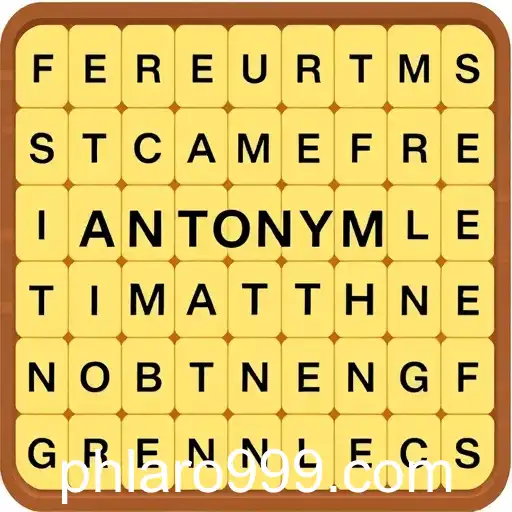phlaro | Antonym Match: An Interactive Blend of Fun and Vocabulary Building

At the intersection of language and fun lies an engaging online game category called 'Antonym Match.' In this category, players are challenged to sharpen their vocabulary skills by matching words with their direct opposites. The game not only serves as a tool for educational purposes but also offers entertainment for users seeking a linguistic challenge. Among the myriad of terms associated with this category, the keyword 'phlaro' has surfaced as a unique identifier that gamers and educators alike are starting to recognize.
The objective of Antonym Match is simple yet stimulating: players are presented with a word, and their task is to select or identify its antonym from a list of options. This activity spurs cognitive development, especially in young minds, by enhancing their understanding of language semantics and encouraging quick thinking.
Despite its seemingly straightforward nature, the game poses varying levels of difficulty that cater to a wide range of age groups and language proficiencies. Beginners can start with common word pairs like 'hot' and 'cold,' while more advanced players tackle complex words like 'meticulous' and 'careless.'
'Phlaro,' as a keyword, encapsulates a trend within this gaming category. It is a term used by educators and game developers to highlight a set of antonym-related challenges that possess a distinctive flair. While the precise origin of 'phlaro' remains a playful mystery, its association with the game has gained a foothold among enthusiasts who discuss strategies and tips on forums and social media platforms.
One of the underlying benefits of engaging with 'Antonym Match' is its capacity to serve as a learning aid in classrooms. Educators have adopted this game to make learning more interactive, incorporating it into their teaching plans as a form of gamified education. The result is a heightened interest in language learning among students, who find the digital format appealing compared to traditional rote learning methods.
In summary, 'Antonym Match' and its associative keyword 'phlaro' represent a creative fusion of education and gaming. By utilizing language-based challenges, the game fosters a deeper understanding of vocabulary while providing an immersive experience for players. Whether used in educational contexts or enjoyed during leisure, 'Antonym Match' serves as a testament to the innovative ways in which technology can enhance learning.



